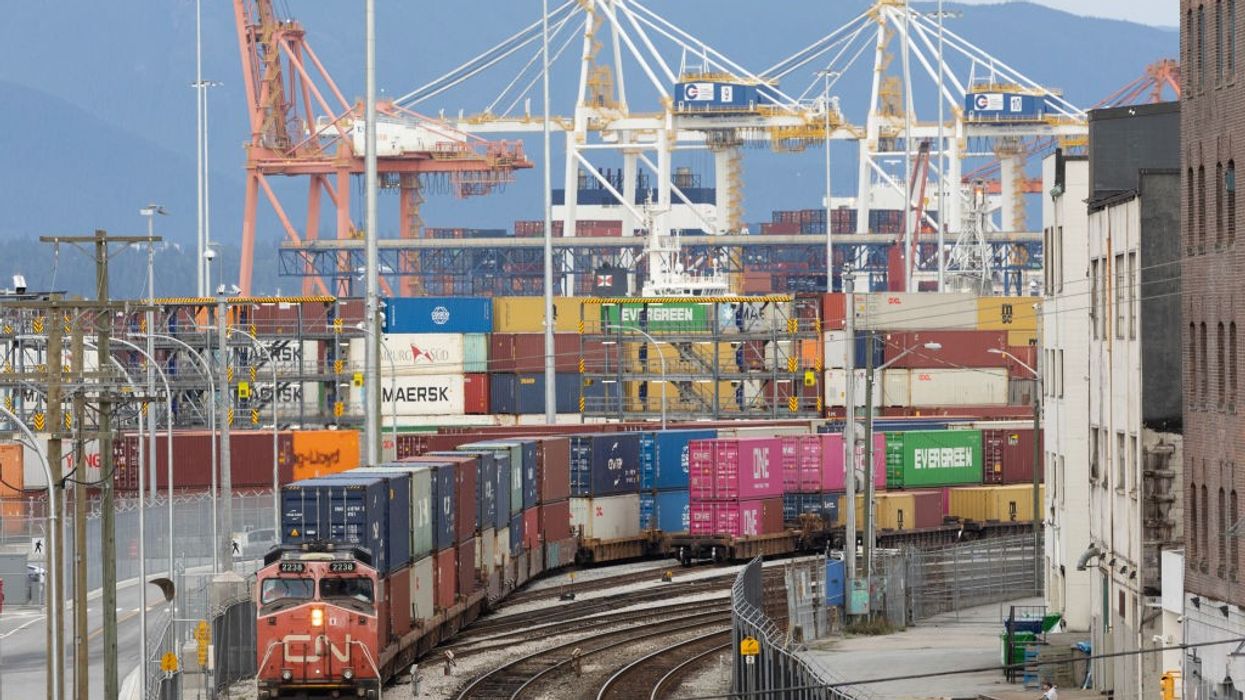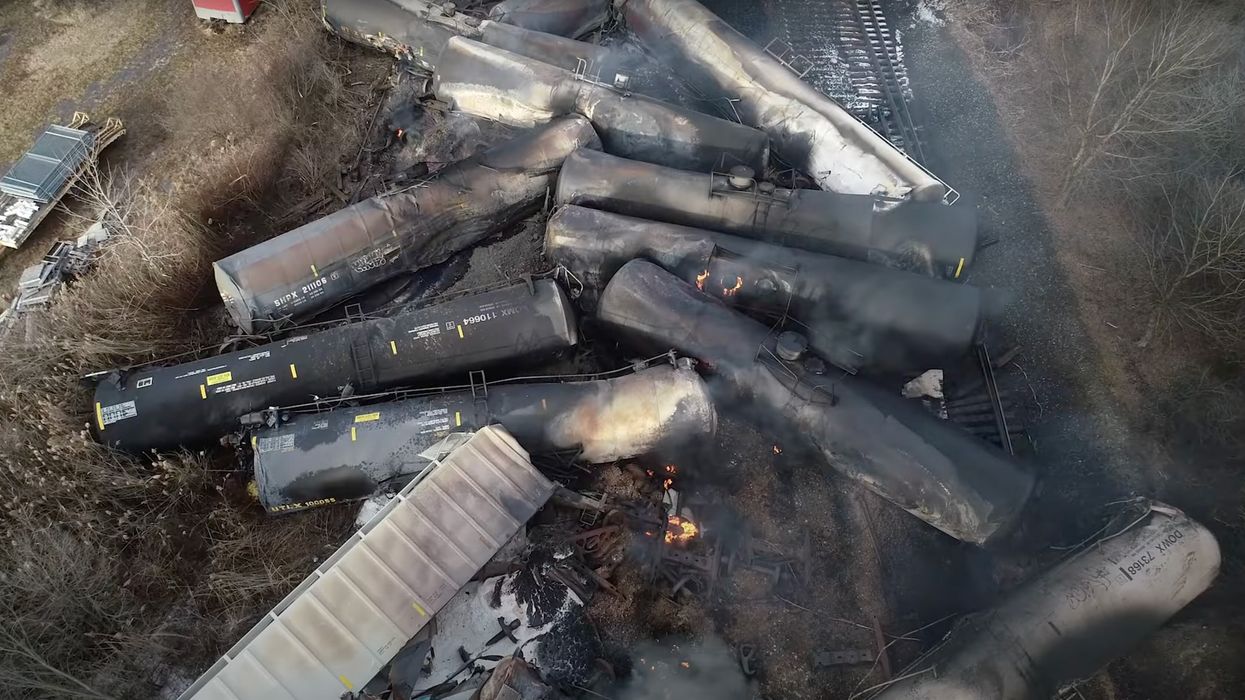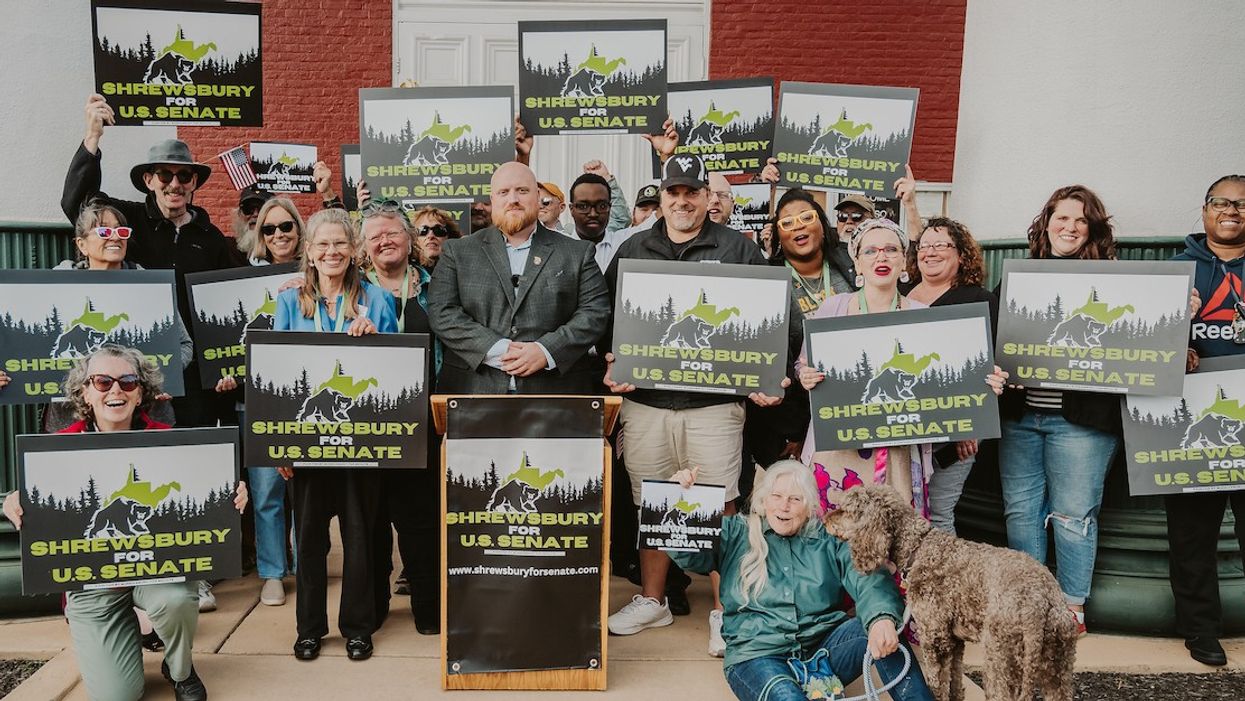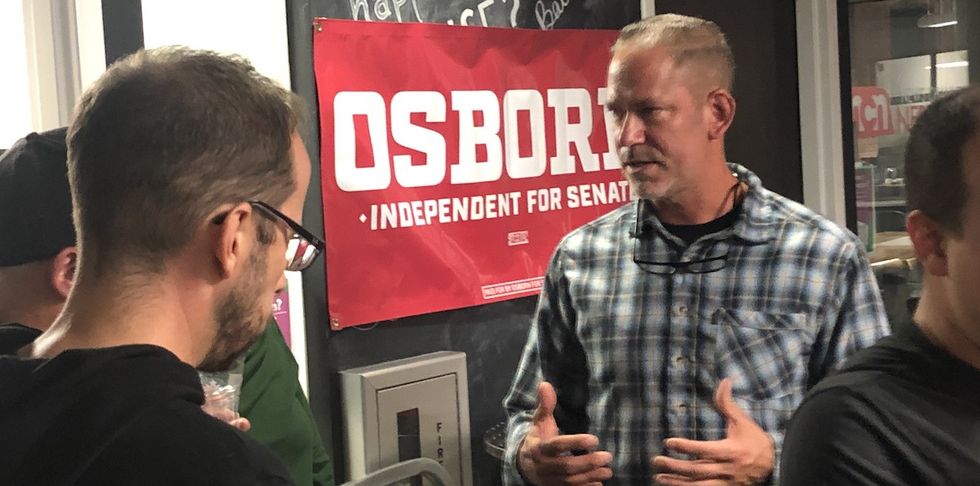How could the crew not have received a timely warning? Might the train have been excessively long with the railcars incorrectly assembled? Was the crew adequately trained? Were there maintenance deficiencies that caused a wheel-bearing failure?
Welcome to
precision scheduled railroading.
It was only a matter of time before Wall Street's practice of financializing every aspect of the U.S. economy as a means of draining the life out of them invaded the railroad business.
It was only a matter of time before Wall Street's practice of financializing every aspect of the U.S. economy as a means of draining the life out of them invaded the railroad business. The term concocted by the suits for this is "precision scheduled railroading," a euphemism for "shareholder value," itself a euphemism for employing any excuse to lavish stock options and bonuses on corporate management while hollowing out the physical and human capital of the company.
Precision scheduled railroading is responsible for trains so long (and excessive stress on the couplers) that
grades and curves will tend to decouple the cars. These long trains mean fewer trains, leading to inflexibility and inconvenience for shippers. Management makes every effort to tear out what it regards as underused rights of way and sidings, leading to further service cuts for customers. After the recent merger of Kansas City Southern, there are just six Class I railroads nationwide, and a near-duopoly (NS and CSX) east of the Mississippi, so customers have little recourse. Maintenance and safety are neglected while employees are overworked and undertrained.
Have you noticed that freight trains no longer have cabooses at the end? Management certainly isn't going to haul a piece of rolling stock that doesn't produce revenue. As a result, there is no freight conductor or brakeman at the back of a train providing an extra pair of eyes that could detect problems at the rear of increasingly long trains. Could that pair of eyes have spotted the fire on NS 32N? We'll never know; railroad management foreclosed that possibility.
The pervasive greed of Gordon Gekko-style railroading and the recklessness it spawns aren't just responsible for safety issues. As the American economy began to rebound from the pandemic, the industry's penchant for
mergers, capacity reduction, and inflexible scheduling with fewer trains contributed to the supply-chain bottlenecks that became a threat to economic recovery. And since the railroad rights of way are in the hands of freight railroad oligopolists with little regard for public interest, President Biden's ambitious rail infrastructure plans are in jeopardy–what good are high-speed passenger trains if the freight roads refuse to give them priority?
But a rickety and mismanaged rail system was not the only domestic infrastructure shortfall the pandemic revealed; the very medical sector that had to contain the spread of COVID prior to the development of mRNA vaccines was clearly inadequate. Health care, at
18.3% of GDP, is the largest single component of the U.S. economy–yet it was woefully short of basic personal protective equipment (PPE) at the onset of the pandemic.
When medical personnel are also considered potential excess inventory, a
shortage of healthcare workers is entirely predictable.
Medical professionals have known for over a century that the most basic means of combating a viral pandemic is a simple paper mask. Even an N95 mask, which uses very fine, electrostatically charged fibers to more effectively trap viruses, is infinitely simpler than, say, an F-35 fighter, which contains
300,000 parts sourced from 1,700 suppliers. Yet there was such a mask shortage in the first year of the pandemic that some nurses reused the same mask for months. Why?
Aside from complacency at all levels during normal times,
potential American manufacturers are reluctant to gear up without a guarantee of long-term quantity purchases. As a result, about 50% of mask production resides in China. It is natural that in a health emergency, other countries are going to want to reserve PPE to meet domestic needs first, quite apart from the fragility of a trans-Pacific supply chain amid a global pandemic.
The shortage of U.S. hospital beds was evident to every American during the COVID crisis. But this shortage long preceded COVID, and
it continues to exist post-pandemic. It did not happen by accident; the market-driven "lean inventory" cult of the business school was responsible. When medical personnel are also considered potential excess inventory, a shortage of healthcare workers is entirely predictable.
It should be obvious that fields like health care are not amenable to free-market dogma. For starkly different reasons, neither is the military. Yet in recent decades, the ideological mania for consolidation, outsourcing, privatization of government functions, and the downgrading of basic, low-profit hardware and activities in favor of complex, high-profit wonder weapons that may or may not work appear to have made the U.S. military a lavishly funded behemoth with feet of clay.
Russia's invasion of Ukraine has showed that, despite a defense budget of
over three-quarters of a trillion dollars, the U.S. didn't get a lot for the money. Russia has been firing on average over 20,000 rounds of artillery against Ukraine, which can respond with only about a third of that number. The quantity is effectively rationed by the inability of the U. S. and its allies to produce more shells.
Since the war began, the U.S. has transferred about
1.5 million 155mm artillery rounds to Ukraine. This is a very basic item–the 155mm shell in various forms has been around since World War I. Yet for months, the Army has been gravely concerned about depletion of the ammunition stockpile, and with good reason. Annual U.S. production of the 155mm round is less than a tenth of the amount it has sent to Ukraine. Even surge production would require five years to rebuild the inventory because of the lead time needed to set up new manufacturing capability in a country with a gutted industrial base (the shells are produced in a century-old factory).
Replenishment time is much the same with many other munitions sent to Ukraine—the Javelin antitank missile: 5.5 to eight years; the HIMARS guided rocket: 2.5 to three years; the Stinger antiaircraft missile: 6.5 to an incredible 18 years. The verdict is damning: For all the money thrown at the Pentagon, the Department of Defense cannot supply weapons to a third party for a conventional land war of moderate size and intensity for much longer than a year without depleting its munitions stocks.
It is conventional wisdom in some quarters that Wall Street and the Pentagon are in a sort of symbiotic relationship–if not an active conspiracy–that benefits both. Yet by aping the fads of the biz schools–bare-bones inventory, just-in-time delivery, eradicating small producers to reduce alleged overcapacity, treating the workforce as a liability rather than an asset–the military bureaucracy has engaged in a kind of unilateral disarmament even as
defense stocks have surged. By virtually every measure, numbers of major U.S. military hardware have steadily decreased: There are now fewer ships than before, and there will be fewer yet in the future. The same holds true for aircraft.
Mythology to the contrary, there is actually no freestanding or independent military-industrial complex anymore; it is a subset of the dominant national economic culture in the same way that the healthcare-industrial complex and the
college educational-industrial complex are now mere components of that culture. It is a reductionist system that seeks to convert all work activity–even ones not adaptable to the supply/demand, profit/loss calculus of classical economics–into financialized investment vehicles.
And so it is with the economy as a whole. The pandemic, the resultant surge in consumer demand once the COVID restrictions were relaxed, plus the war in Ukraine, created the perfect storm of the supply chain crisis. It caused a global shortage of high-end logic chips used in automobiles, IT, and appliances that has still not abated, and transportation bottlenecks resulted in a scarcity of everything from infant formula, to sunflower oil, to clothing, to home and garden items.
These bottlenecks mean higher prices. As of March 2023, the average price of a new car in America was
$45,818, according to J.D. Power. That's actually eased from $49,388 at the beginning of the year, but is still well more than half of the median household income in America.
There was probably no way to avoid some level of shortage given the worldwide scale of the COVID pandemic and the market disruption of the Ukraine war, but the supply chain breakdown was substantially worsened by the economic shibboleths that have been imposed on most of the global economy:
just-in-time manufacturing and delivery, lean inventory, and inadequate transport capacity (such as with ships and trains).
Somehow, the ideology of
capitalist realism, the unshakeable belief that there is absolutely no alternative to the business model of Jack Welch and his ilk, has battened itself onto forms of human activity as disparate as running a railroad, stocking cooking oil on the shelf at Safeway, supplying the Ukrainian front line, or saving lives in an emergency room.
The roots of this ongoing crisis of late capitalism go back more than half a century, and are found in the rise of transnational conglomerates, outsourcing, suppression of unions, and the favorable tax treatment of offshoring corporate operations. It is best summed up by the words of former GE CEO Jack Welch, once worshiped as the consummate business genius (and retrospectively deplored as the greatest single factor in wrecking one of America's foremost engineering firms): "Ideally, you'd have every plant you own on a barge," where it would be beyond any country's laws on safety, the environment, or fair pay.
It goes without saying that the prompt delivery of products to consumers, the production of artillery shells for war, and the manufacture of medical equipment to save lives are hardly comparable with one another, either in a crude functional sense or on a moral scale. But that is exactly the point.
Somehow, the ideology of
capitalist realism, the unshakeable belief that there is absolutely no alternative to the business model of Jack Welch and his ilk, has battened itself onto forms of human activity as disparate as running a railroad, stocking cooking oil on the shelf at Safeway, supplying the Ukrainian front line, or saving lives in an emergency room. Is it any wonder that issues like climate change are so poorly addressed?




